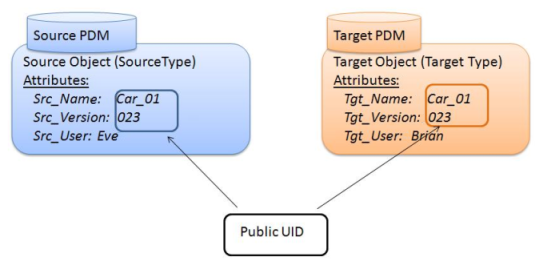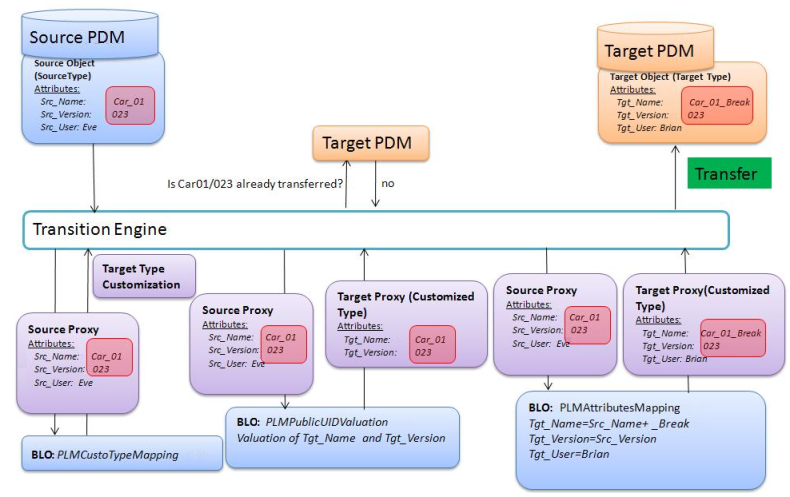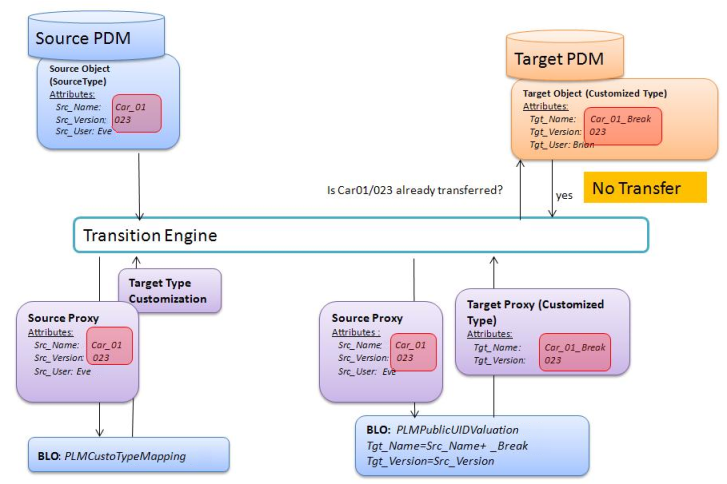Role and Limitations of the PUID Valuation Business Logic Openness
This Business Logic Openness (BLO) allows you to retrieve some attribute values contained in each element to be transferred. These values are concatenated to generate a Public Unique Identifier (PUID).
This BLO allows you to identify an element from among several PDM sources or targets. An attribute value is used for the PUID if it is valuated through the PUID Valuation Business Logic Openness. This BLO presents the same input and output objects as the PLM Attributes Mapping one, attribute valuation then occurs in the same way. Once it is created, the PUID allows you to query the target database to determine whether it contains the corresponding element. A query is launched for each target customized type. For each of these queries, the same attribute set should be modified. Otherwise, the transfer will fail. The query can be launched only if the selected clause (made up of PUID attributes) is the same for all result elements. As seen before, a PUID valuation BLO must modify the same attributes for all elements presenting the same target customized type. The values of these attributes should of course be different for each element to ensure the uniqueness of the PUID. These values should remain the same for all transactions to ensure the stability of the PUID. For each target type, a PUID valuation BLO should be provided. This avoids unintentional default behavior. Even for target types with no PUID attributes, an empty PUID Valuation Business Logic should therefore be provided. In this last case, no PUID query is launched.



